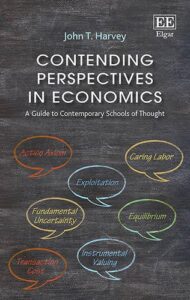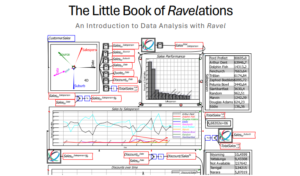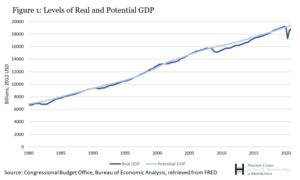This blog post series is my attempt to summarize, and do justice, to the book Contending Perspectives in Economics by John T Harvey PhD. I consider this book to be exceptionally well written and to clearly explain:
- Various and diverse schools of thought (perspectives) in economics
- How they came to be the way they are
- How they differ from other schools of thought
This post is about Chapter 1 (Introduction) and Chapter 2 (Economics as a scientific discipline).
Table of Contents
Chapter 1: Introduction
To me, the most important takeaway from this chapter is that NOT learning about the diversity in economic thought limits what you see, and limits what you’re willing to think about what you see.
I was previously unaware of some of these schools of thought, but now that I am, I see why they exist and value they provide.
Chapter 2: Economics as a scientific discipline
I found this chapter to be rather intense, and I only hope I can do it justice here.
The main point I took from this chapter is taht people who pursue the academic study of and later pursue an academic career in (which means teaches other) economics, learn first and foremost to think like and behave like, economists.
This is clearly not limited to economics, but his description of how this happens helped me understand how what look to me to be obviously false notions simply do not go away.
A slight digression, then back on track: The rational agent
Here I’m going to deviate from summarizing the chapter slightly, to provide what seems to me to be a glaring example of this.
One of the foundational principles of neoclassical economics is that us people who operate within an economic system act as rational agents and make informed decisions. Then then go on to say that by us each individually making rational decisions to further our individual self interests, we collectively increase the material wealth of society.
In 2017, Richard Thaler was awarded the Nobel Prize in Economic Science for demonstrating that we do NOT act as rational agents.
Here is a comment about his work taken from the press release the Nobel Prize committee issued about his prize.
“Richard H. Thaler has incorporated psychologically realistic assumptions into analyses of economic decision-making. By exploring the consequences of limited rationality, social preferences, and lack of self-control, he has shown how these human traits systematically affect individual decisions as well as market outcomes”.
Essentially, Richard Thaler was awarded a Nobel Prize for demonstrating that one of the foundational principles of neoclassical economics is just not true.
Yet neoclassical economics is STILL the dominant school of thought taught to budding economists.
How can this be?
OK, now back on track
The dynamic, as best I can summarize/explain from the chapter, is the details of each school of thought are self reinforcing, through the professional requirements of an academic career track, and the generally accepted standards of behavior which members of a profession expect from each other.
This idea is well illustrated by one very specific and very important part of this. That of getting published.
Getting published is critical for the academic economist.
After you obtain your PhD, you get a job teaching.
You then have a six year period (at his University – other Universities may have different time frames) in which in addition to teaching, you conduct research, submit papers to scholarly journals, and get published.
He states that in 2008, 34,000 such papers were submitted to the scholarly journals and there is no where near enough space in the journals to print them all.
Each journal imposes criteria they consider to be relevant, and in order to get published, not only does a researcher need to write about something the journal editors feel will be interesting to their readers, the researcher has to present ideas that are not too weird, weird being a subjective concept.
It’s worth commenting that different schools of economic thought have different journals to which researchers submit papers, the idea of “weird” get a little weirder, as each school of thought as different ideas about what is “too weird”.
This teaches economists to narrow their research topics and research methods to ones that increase their odds of being published, which they all NEED to do, within a defined time frame.
This guides economists to some level of “entrenchment” within their school of thought.
And THIS is how Richard Thaler can get a Nobel Prize for disproving a foundation concept of a dominant school of economic thought without simultaneously that school of thought being abandoned.
Too many people have become too entrenched in it for it to be discarded so quickly and easily.
There is more than just the need to be published that “boxes economists” into their school of thought, but hopefully the description above gives you an understanding of this dynamic.
So what’s the answer?
Talk to each other. Learn each others foundational ideas. Learn why they’re believed to be true.
And keep that conversation going.



